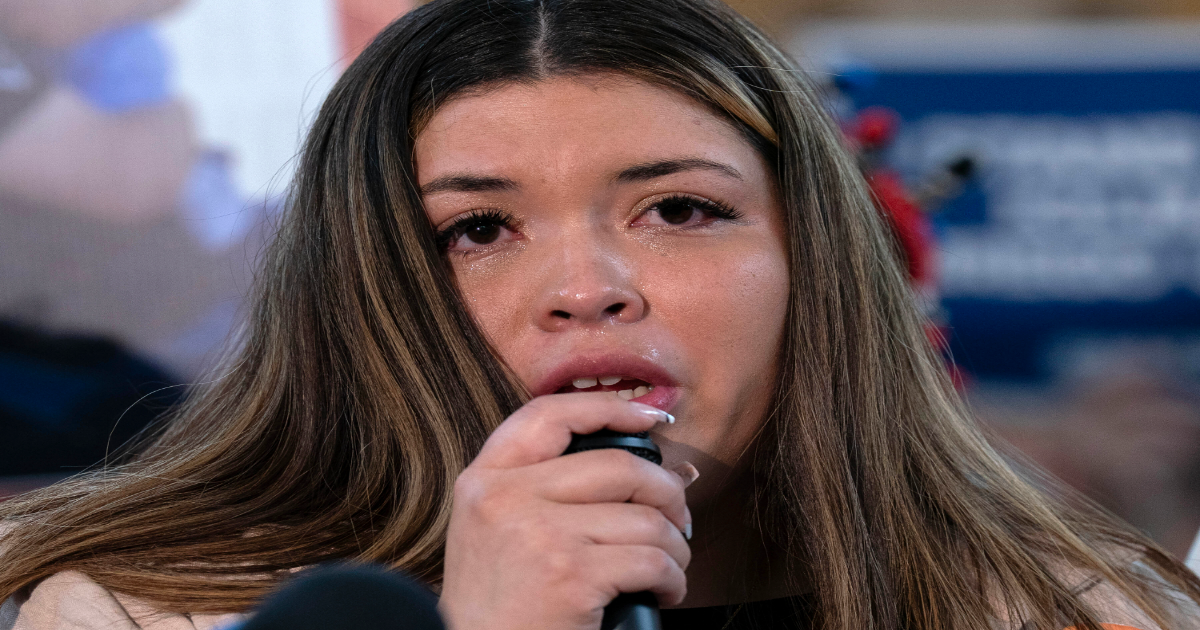Just hours before a midnight deadline Monday, Chief Justice John Roberts gave the Trump administration a reprieve from having to immediately bring back to the U.S. a man who was illegally deported to El Salvador last month.
Roberts acted shortly after the Trump administration filed an emergency appeal of a district judge’s directive that U.S. officials return Kilmar Abrego Garcia.
The administration deported Abrego Garcia despite an immigration judge’s 2019 ruling that he not be sent to his home country of El Salvador because he would likely face persecution there.
Roberts issued a terse administrative order indefinitely lifting the deadline of 11:59 EDT to return Abrego Garcia set by U.S. District Judge Paula Xinis. The Trump administration had said that deadline was “impossible” to meet.
The chief justice’s order is not a ruling on the underlying legal issues in the case; it is intended to give the Supreme Court more time to consider what steps to take next.
The government has acknowledged that the deportation of Abrego Garcia was an “error” that violated the 2019 immigration’s judge’s ruling. But the administration argues that courts have no authority to order him returned to the United States now that he has been turned over to the government of El Salvador, where he is being held in a notorious mega-prison for gang members.
In a brief filed earlier Monday, Solicitor General John Sauer asked the justices to block Xinis’ order, which he called “unprecedented and indefensible.”
Abrego Garcia’s attorneys urged the Supreme Court to leave Xinis’ order in place.
“He sits in a foreign prison solely at the behest of the United States, as the product of a Kafka-esque mistake,” they wrote in response to Sauer’s appeal.
Abrego Garcia entered the United States without authorization around 2011, the government says. He has no criminal record in this country or any other country, according to his lawyers. Before immigration officials detained him and swiftly deported him in March, he had lived for years in Maryland with his wife and children, all of whom are U.S. citizens. He was employed as a sheet metal worker and had attended annual check-ins with immigration authorities, his lawyers say.
The Trump administration has claimed that Abrego Garcia is a member of the MS-13 gang, but it has offered scant evidence for that claim, and multiple lower-court judges have flatly rejected it. Abrego Garcia’s lawyers say he was, in fact, fleeing gang violence when he came to the United States, a position that an immigration court accepted in 2019 when it barred his deportation to El Salvador.
“Abrego Garcia has lived freely in the United States for years, yet has never been charged for a crime,” his lawyers wrote. “The Government’s contention that he has suddenly morphed into a dangerous threat to the republic is not credible.”
Roberts’ stay came several hours after a three-judge panel of a federal appeals court unanimously rejected the administration’s request to put Xinis’ order on hold.
“The United States Government has no legal authority to snatch a person who is lawfully present in the United States off the street and remove him from the country without due process,” 4th Circuit Court of Appeals Judge Stephanie Thacker, an Obama appointee, wrote in an opinion joined by Judge Robert King, a Clinton appointee. “The Government’s contention otherwise, and its argument that the federal courts are powerless to intervene, are unconscionable.”
J. Harvie Wilkinson, a Reagan appointee, filed a separate concurring opinion, saying the Trump administration’s position on Abrego Garcia amounts to “a path of perfect lawlessness.”
“The facts of this case … present the potential for a disturbing loophole: namely that the government could whisk individuals to foreign prisons in violation of court orders and then contend, invoking its Article II powers, that it is no longer their custodian, and there is nothing that can be done,” Wilkinson wrote.
Wilkinson voted with the other judges to deny the Trump administration’s request to put the lower court order on hold, but expressed misgivings about the courts delving into diplomatic matters. Wilkinson said he’d interpret the order to mean the U.S. government must do what it can to “facilitate” Abrego Garcia’s return.
